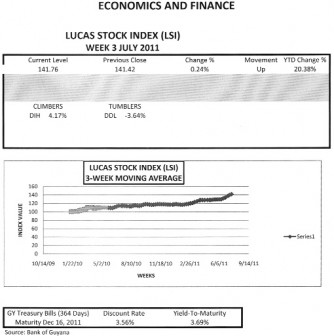Village Conditions
The village of Victoria, located about 18 miles from Georgetown, has begun preparations for hosting the second Indaba (conference) in an effort to take control of its economic future and to bring greater economic and financial success to its residents. Last year, Victoria, as a rural community, started that process by beginning a dialogue among its residents and others that included the voices of hope and despair. Under the theme of “Imagining, Involving and Investing in the Future”, the Indaba of 2010 provided residents with a platform on which to promote and pursue their aspirations for a better community and to find ways of improving their personal, economic and financial condition. Having had a chance to reflect on the condition of their lives, this year the Indaba will take a look at village conditions under the theme of “Causes, Consequences and Cures” to help identify the environmental and other factors that are preventing the development of the village.
Similar Fate

While some residents are doing well for themselves, the economic circumstances of others are not particularly good. The latter state of affairs is the more overwhelming and reflects itself in various ways in the village. In addition to the condition of structures and the surrounding environment, there is a human dimension of grave concern. Victoria shares a similar fate like every other part of Guyana. It has a high rate of unemployment. It experiences severe flooding due to poor drainage and irrigation management. Ever since 2005, household expenditures tend to exceed household income in the aggregate, reflecting rising prices, low wages and continued unemployment. Victoria, in years past, was known for its farming activities and value-added products. The village produced a variety of crops including ground provisions, vegetables and grain. It also reared livestock of various sorts, including chickens, cows, sheep, pigs and goats. Victoria produced many processed foods as well, including casareep, starch and cassava bread.
Younger Generation
Things changed over the years and the village lost the capacity to meet many of its food security needs. Today, Victoria buys food from other villages. Various reasons have been advanced for the collapse of agricultural production and the processing industry. A renewed effort is under way to expand food production, but will require more than lip service. To avoid disappointment, Victoria realizes that the move back to agriculture must take account of the competition for the time and interests of the younger generation. Other economic activities such as gold production, housing construction and transport services generate faster and more predictable income, with opportunities for instant gratification. The more ambitious often turn to professional pursuits that sometimes take them away from the village. Agricultural activity therefore might not easily appeal to the younger generation and would require changes in methods to attract youths. The novelty and rapid changes in information and communication technology can be a help or hindrance. However, that is not stopping Victoria from attempting to rebuild its agricultural base and restructure its economy.
Starting Point
About eight years ago, some members of the Victoria community came together and formed an organization called the Victoria Reconstruction Trust (VRT). The formation of this entity represented an identifiable starting point by Victoria to rebuild and reshape its economy. The principal objective of the VRT is to assist those who choose to participate in its vision to find ways to make a decent and good living. Among its target group are young adults who are experiencing difficulty in reaching their full potential.
Holistic
Through specially designed training programmes, the VRT helps young adults to acquire skills in such fields as agriculture, motor mechanics, carpentry, welding and electrical installation. With Victoria being a deeply religious community, the VRT also encourages the spiritual development of its members. Together, they can be seen as a holistic approach to the human development of the village and of those who come from beyond. Once again, the Indaba to be held from August 4 to 7, 2011 is being organized by the VRT and the entity is gearing itself up to take on the challenges that come with the responsibility of helping to reposition Victoria as an important economic centre. The VRT is being assisted by the Victoria Conference Leadership Committee (VCLC), an Ad hoc body engaged in planning, organizing and implementing the conference and related activities. Critical inputs also come from the “Victoria Village Diaspora”, a non-profit organization based in New York, USA.
Outreach
But Victoria is doing more than looking inwards for solutions to its economic and financial problems. It has begun to build relationships with important private sector institutions with a view to putting itself in a position to meet and enhance some of its technical skills and financial requirements. This outreach also extends to relevant public sector agencies which are able to offer the type of assistance required to energize the agricultural effort consistent with the national agricultural thrust. Areas outside of agriculture also form part of the work plan of the community and consultations with public sector entities.
Victoria knows the wisdom of taking initiatives. By doing so, it knows that it is putting itself in a better position to make choices that are relevant to its needs and consistent with its best interests. In that way, Victoria was likely to help its residents to get closer to their goal of economic and financial success.









